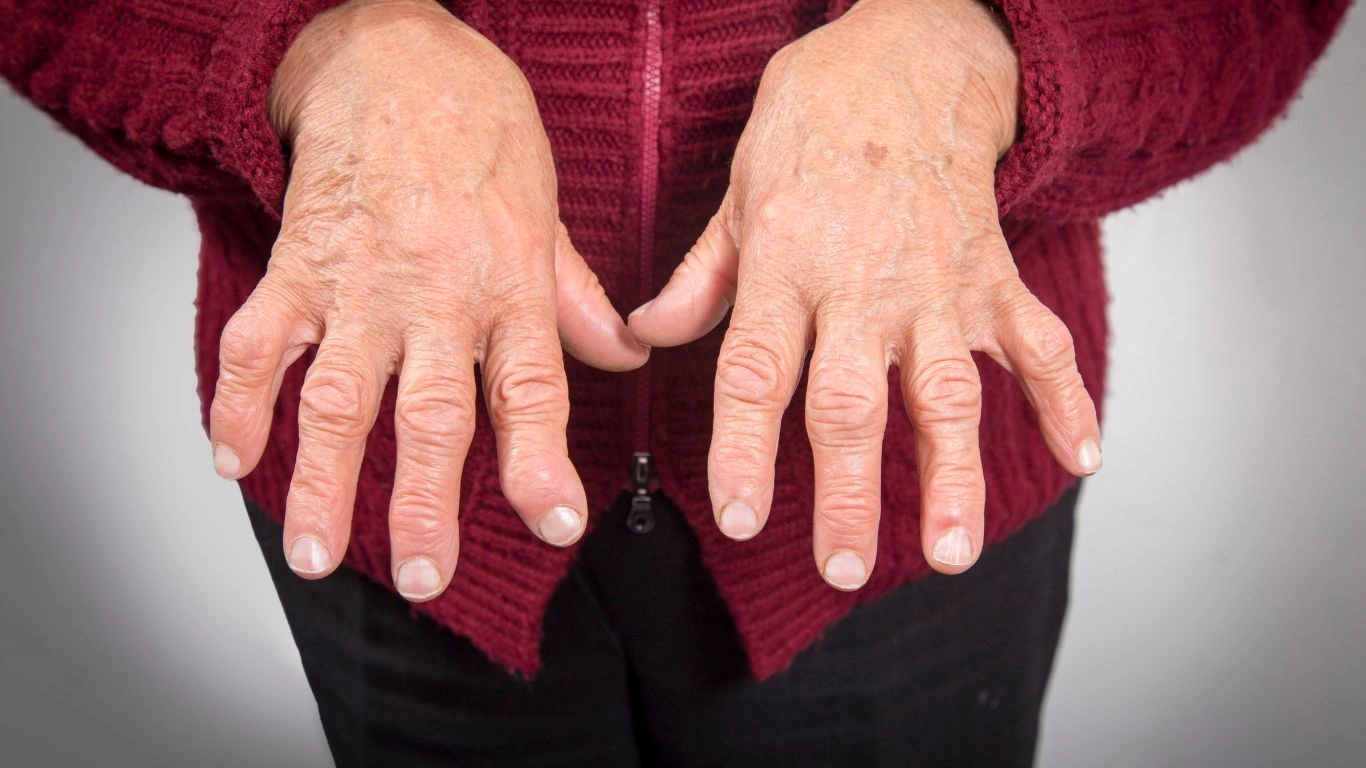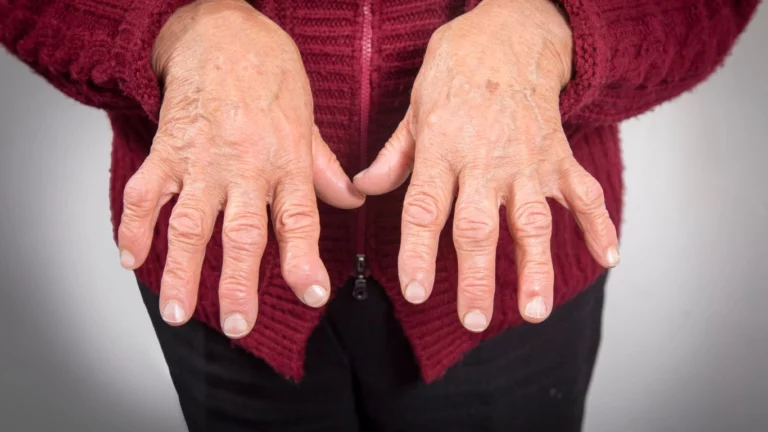Can Rheumatoid Arthritis Affect Your Teeth and Gums? Learn How!
Can rheumatoid arthritis affect your teeth and gums? Honestly, that’s a question I hear more often than you’d think—especially after someone sits in my exam room and starts connecting the dots between joint pain and those weird dental issues they’ve been brushing off. As a Rheumatology nurse practitioner, I’ve had a front-row seat to just how sneaky RA can be. It doesn’t just stop at joints. It gets into places you wouldn’t expect—like your mouth. Yup, your smile might be feeling the impact too.
RA Isn’t Just About Joints—Your Mouth Might Be a Target Too

Let’s cut to the chase: if you have rheumatoid arthritis, your immune system is essentially in a full-time boxing match with your own body. While most people know it loves to pick on joints, fewer realize it can also stir up serious trouble in the mouth.
We’re talking about dry mouth, gum inflammation, receding gums, and even loose teeth. The connection might not be obvious at first glance, but when you break it down, it actually makes a lot of sense—especially when you consider the systemic inflammation at play.
The Science-y Part (But I Promise It’s Quick)
RA is an autoimmune disease, meaning the immune system turns rogue and starts attacking healthy tissues. The same inflammatory cells that target your joints can also target your gums. Think of your gums as soft tissue—just like those surrounding your joints. So if your immune system is already in overdrive, it can spark inflammation in the gums as well, setting the stage for gum disease—or worsening it if it’s already there.
Dry Mouth: The Silent Saboteur
Now let’s talk spit. Or rather, the lack of it. Many of my patients with RA experience xerostomia (that’s the fancy term for dry mouth), either because of the disease itself or the medications used to treat it—especially things like methotrexate or biologics. Less saliva means less natural protection against bacteria, plaque, and tooth decay.
Without enough saliva, your mouth becomes a breeding ground for bacteria that would normally be washed away. It’s like setting up a campsite for gum disease—and it doesn’t take long before it starts pitching a tent.
Medications: Double-Edged Swords
I always say this in clinic—most meds are miracle workers, but they do come with a price. Many RA meds that calm inflammation can suppress the immune system, which makes it harder for your body to fight off oral infections. You might get more mouth ulcers, or notice your gums are more tender or swollen than they used to be. Some of my patients have even had sudden dental infections pop up out of nowhere.
Symptoms You Shouldn’t Ignore

Okay, so what should you look for? Here’s a list I go over with my RA patients—especially those who haven’t had a recent dental check-up:
- Persistent dry mouth or sticky feeling
- Red, swollen, or bleeding gums
- Loose teeth or shifting bite
- Mouth sores that won’t heal
- Increased tooth sensitivity
- Jaw stiffness or pain when chewing (especially the TMJ area)
If you’ve got one or more of these symptoms hanging around—and you have RA—it’s time to flag it with both your rheumatology and dental teams. The sooner we catch oral issues, the easier they are to manage. I’ve had patients who ignored bleeding gums for months, thinking it was “just brushing too hard,” when really, they were dealing with early periodontal disease triggered by their RA.
Gum Disease and RA: A Two-Way Street

Now here’s the kicker—this connection goes both ways. There’s actually some wild research showing that gum disease may worsen RA symptoms. Let that sink in for a second. Inflammation in your gums could potentially feed inflammation in your joints. That’s because bacteria from periodontal disease can travel through the bloodstream and trigger immune responses elsewhere in the body—yep, including your joints.
I had one patient—we’ll call her Linda—who came in with a nasty RA flare that didn’t make sense. Her labs were off the charts, her joints were screaming, but nothing else had changed… except her dentist had just diagnosed her with advanced periodontitis. We got her into a periodontal specialist, started treatment, and within a few months? Her RA inflammation settled down too. Coincidence? Maybe. But I’ve seen it enough to believe there’s definitely something to it.
The Bottom Line So Far
RA and oral health are absolutely connected, and if you’re only focusing on joints, you might be missing half the picture. The question “Can rheumatoid arthritis affect your teeth and gums?” deserves a loud, clear “yes.”
But don’t worry—we’re not done. There’s so much more to cover, from prevention tips to how to work dental care into your RA routine. Stay with me. We’re just getting warmed up.
How to Protect Your Mouth When You Have RA

If you’re dealing with RA, protecting your mouth isn’t optional—it’s essential. And here’s the truth: most patients just aren’t told how important this piece of the puzzle is. I didn’t fully grasp the mouth-joint connection early in my career either. But now? It’s part of every conversation I have with patients, especially when their RA seems tough to control despite meds and lifestyle changes.
So, how can you keep your smile safe while battling RA? I’ve got you covered with both clinical tips and some patient-tested advice from real people just like you.
1. Build a Solid Oral Hygiene Routine
This probably sounds obvious, but I can’t tell you how many folks overlook this step—especially when joint pain makes holding a toothbrush feel like an Olympic sport. Here’s what I recommend:
- Use an electric toothbrush: It does the hard work for you and is much easier on sore hands.
- Brush twice daily with a fluoride toothpaste: RA and dry mouth make your teeth more vulnerable to decay.
- Floss—yes, really: Even if it takes longer, or if you need floss picks or a water flosser, don’t skip it.
If hand mobility is limited (and I get it—it happens), adaptive devices like wide-handled brushes or silicone grips can make a huge difference. A few of my patients even 3D print custom grips for their tools—seriously clever stuff.
2. Don’t Skip Dental Appointments
I know—between rheumatology checkups, lab draws, imaging, and medications, the last thing you want is another appointment. But regular dental visits are key. Aim for every 6 months minimum, but if your gums are already inflamed or if you’ve had infections in the past, your dentist may want to see you more often.
One of my long-time patients—David, a 62-year-old with seropositive RA—started seeing a periodontist every 3 months instead of twice a year. Not only did his gum disease improve, but he also reported fewer RA flares and better energy overall. Coincidence? Possibly. But those improvements lined up with decreased CRP levels, too.
Nutrition: What You Eat Affects Your Teeth and Joints

Let’s talk food. You probably already know that what you eat affects inflammation, but many people don’t realize it also directly impacts your oral health. Sugary foods and acidic drinks can worsen dry mouth and increase the risk of cavities and gum infections. But the good news? Certain foods actually help protect both your teeth and your joints.
Here’s a quick list of mouth- and joint-friendly foods:
- Leafy greens: Rich in calcium and vitamin K, great for bones and gums.
- Fatty fish (like salmon): Packed with omega-3s that help fight systemic inflammation.
- Berries: Full of antioxidants that support gum health and immunity.
- Green tea: Contains catechins that help reduce oral bacteria and inflammation.
And yes—drink water like it’s your job. Keeping your mouth moist helps keep bacteria in check and protects the enamel. One of my go-to tips for dry mouth? Chewing sugar-free xylitol gum (as long as your jaw can handle it). It stimulates saliva and even helps prevent cavities.
The Role of TMJ in RA Oral Complications

Let’s not forget the jaw—the temporomandibular joint (TMJ) is a common target for RA, and trust me, when it flares, you’ll know. I’ve seen patients suddenly unable to chew comfortably, talk without clicking, or even yawn without pain. It’s frustrating and often misdiagnosed as stress or bruxism (teeth grinding), but for RA folks, it’s usually inflammation-related.
If you’re waking up with jaw pain, facial tenderness, or limited opening range, it’s time to loop in a dental specialist or TMJ-focused therapist. RA-related TMJ dysfunction can also affect how your teeth align over time, which adds a whole new layer of dental complexity.
Managing TMJ Pain: A Few Things That Help
- Warm compresses: Apply to the jaw to relax tight muscles and ease inflammation.
- Soft food diet: When flared, stick to things like smoothies, eggs, or mashed veggies.
- Night guards: These can help prevent grinding and stabilize your bite, especially during sleep.
- Physical therapy: Yes, even for your jaw! Some therapists specialize in TMJ mobilization techniques.
One of my patients, Emily, was referred to a TMJ specialist after years of assuming her jaw popping was “just normal.” Turns out, the inflammation had eroded some cartilage in her jaw. With therapy, night guards, and meds, she’s now eating pain-free—and smiling wider, too.
RA Meds & Dental Procedures: What You Need to Know
This is something I always flag to patients—if you’re scheduled for dental surgery (like an extraction or implant), let your rheumatologist and dentist talk to each other. RA meds like biologics, methotrexate, and steroids can affect healing and infection risk.
Some biologics may need to be paused before dental procedures to reduce the risk of infection. But that’s not something you should do on your own—it needs a coordinated plan. I’ve helped coordinate dozens of these pre-op discussions between dental and rheum teams, and trust me, it makes a difference.
Even simple cleanings or deep scaling procedures can be more complicated if you’re on immune-modulating meds, so make sure everyone on your healthcare team is in the loop.
And don’t forget to tell your dentist:
- All medications you’re on (not just RA meds)
- If you’ve had joint replacements (some dentists will recommend antibiotics beforehand)
- Any changes in your RA symptoms since your last visit
I always tell my patients: the more your providers communicate, the better your care. It shouldn’t be up to you to play go-between, but bringing it up at appointments helps get the ball rolling.
Holistic Approaches to Manage RA and Protect Your Teeth

Alright, let’s shift gears a bit. While meds and dental care are crucial in managing RA, a lot of patients I’ve worked with have told me that incorporating holistic or lifestyle changes has made a huge difference in their quality of life. And here’s the thing: these practices don’t just help with your RA symptoms—they can also help protect your teeth and gums.
1. Stress Management: It’s All Connected
RA flares are no fun for anyone. And while we’re all juggling the physical pain, the emotional toll of chronic illness can’t be ignored. In my experience, stress is a major factor that exacerbates both RA symptoms and oral health issues. Stress can actually trigger an inflammatory response in the body, making your RA worse and possibly affecting the health of your gums too.
What works for stress relief? In my practice, I’ve seen patients who found relief through things like yoga, meditation, mindfulness exercises, and deep breathing techniques. I always encourage my RA patients to find something that helps them unwind—whether it’s a hot bath, a walk in nature, or simply practicing a few minutes of focused breathing every day. I’ve seen it change lives—and smiles.
2. Supplements: The Good Guys for Teeth and Joints
When it comes to supplements, I’m always cautious. I’m a fan of letting patients try natural approaches, but I want to make sure they don’t clash with their RA medications. That being said, there are some really solid supplements that can work wonders for both RA and oral health. Here’s the scoop:
- Omega-3 fatty acids: These anti-inflammatory oils are good for both your joints and your gums. Fish oil or plant-based alternatives like flaxseed oil can help reduce inflammation.
- Vitamin D: Research shows that low vitamin D levels can worsen RA symptoms, and it’s essential for bone health (including your jawbone!).
- Probiotics: Not just for gut health, but oral health too. Probiotics can help maintain a healthy balance of bacteria in your mouth, preventing gum disease and promoting a healthy immune response.
- Turmeric (Curcumin): This golden spice has potent anti-inflammatory properties and has been shown to help with RA symptoms and overall inflammation.
But a word of caution—before you add any supplements to your routine, be sure to talk with your doctor or pharmacist. The last thing you want is to mix something that could interfere with your RA meds. Always take that extra step to check in with your care team!
Stay Up to Date: The Latest in RA and Oral Health Research
Now, we can’t forget about the science part. One of the most rewarding parts of my job is keeping up with the latest research—and trust me, the field of RA and its impact on oral health is evolving fast. While we know a lot about the connections between RA and gum disease, scientists are diving deeper into how periodontal disease might contribute to the severity of RA itself.
For example, a recent study published by the National Institutes of Health found that patients with severe gum disease had an increased risk of more aggressive RA symptoms. This study helps reinforce the idea that gum health isn’t just an afterthought; it could directly influence how well you manage RA. Isn’t that wild?
Other studies are focusing on the role of RA medications and their potential side effects on oral health. Research has shown that certain medications like methotrexate, used to treat RA, can increase the risk of mouth sores and gum problems. Keeping in touch with your dental care provider about your medications is crucial to prevent these issues from becoming long-term problems.
The Power of Regular Checkups
In the world of RA, regular checkups are your best friend. I always remind patients that dental exams are just as important as your routine RA checkups. Why? Because the earlier we spot something, the sooner we can address it before it turns into something bigger.
So, don’t put off that dental cleaning or gum check. It might seem like just another appointment in an already packed schedule, but it’s your mouth’s first line of defense. I promise—taking care of your teeth and gums is part of the bigger picture when it comes to RA management.
Disclaimer
The information provided in this article is for informational purposes only and is not intended to replace professional medical advice, diagnosis, or treatment. Always seek the advice of your physician or other qualified health provider with any questions you may have regarding a medical condition or treatment options. Never disregard professional medical advice or delay in seeking it because of something you have read in this article.
Consult with your rheumatologist, dentist, or healthcare provider before making any changes to your treatment plan, medication, or lifestyle habits.
Conclusion: Keep Smiling, Keep Managing
At the end of the day, managing rheumatoid arthritis is a balancing act. It’s about addressing the joints, but also remembering that other areas—like your teeth and gums—are in the line of fire too. By staying proactive with your dental care, watching your nutrition, managing stress, and keeping up with the latest research, you can make sure that your smile stays as strong as your joints. And trust me, it’s all worth it.
Keep taking good care of yourself, and don’t be afraid to reach out to your healthcare team for advice—whether it’s about RA, your oral health, or both. You’ve got this!

Tarra Nugroho is a dedicated Nurse Practitioner with a strong foundation in family and preventive care. She brings both compassion and clinical expertise to her practice, focusing on patient-centered care and health education. As a contributor to Healthusias.com, Tarra translates medical knowledge into clear, empowering articles on topics like women’s health, chronic disease management, and lifestyle medicine. Her mission is simple: help people feel seen, heard, and informed—both in the clinic and through the content she creates. When she’s not caring for patients, Tarra enjoys weekend hikes, plant-based cooking, and curling up with a good health podcast.







